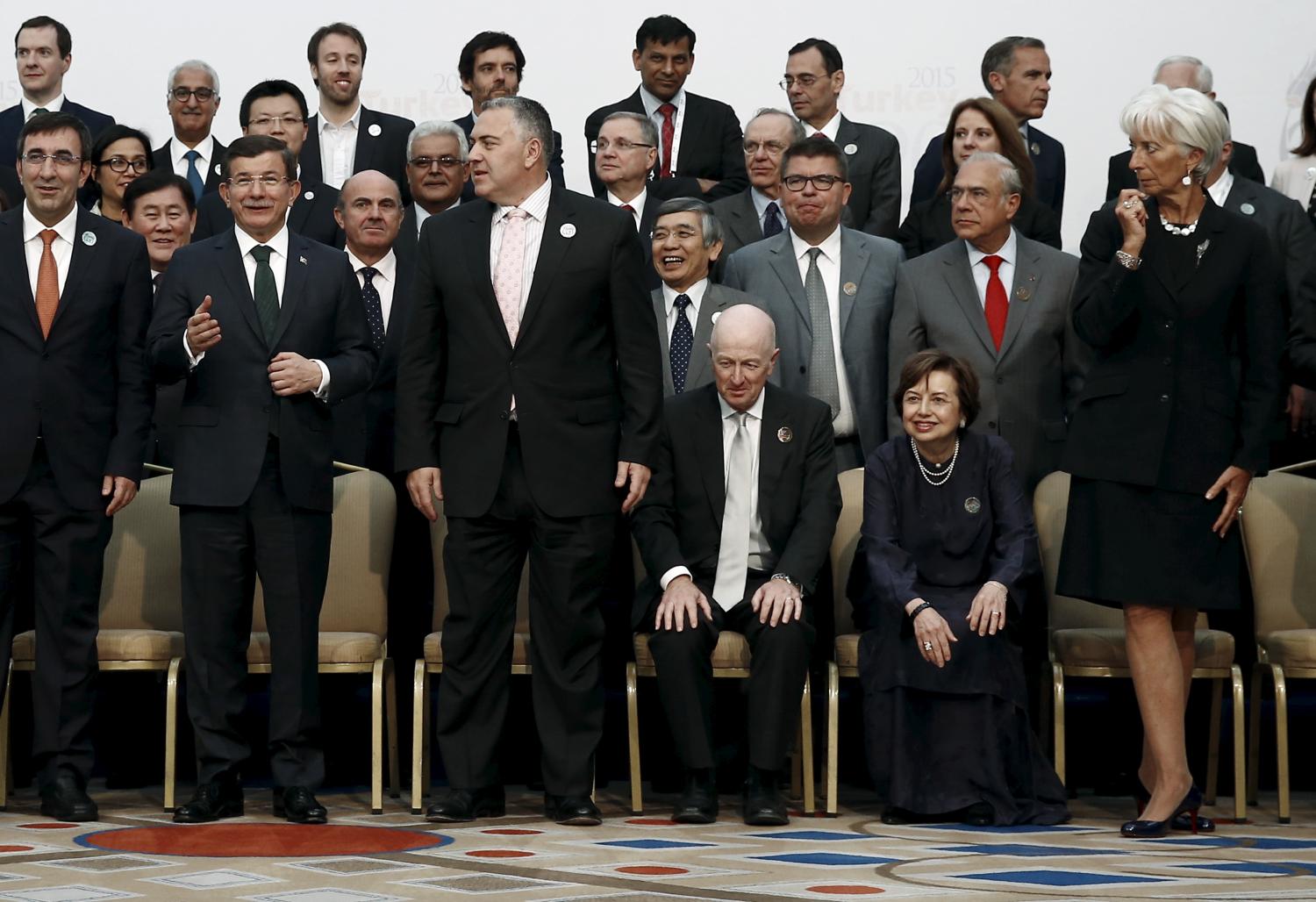Editor’s Note: The paper is part of a book entitled, “The G8-G20 Relationship in Global Governance.”
Future global growth faces many challenges. The first is securing economic recovery from the global financial crisis and reviving strong growth. The euro area has experienced a double-dip recession. Growth remains subdued in other advanced economies. Emerging economies (including the BRICS countries of Brazil, Russia, India, China, and South Africa, as well as other major emerging economies) had been the driver of global growth, accounting for almost two thirds of global growth since 2008, but in 2013 they too were experiencing slowing growth. The second challenge is sustaining growth. Many countries have large and rising public debt, and face unsustainable debt dynamics (International Monetary Fund [IMF] 2012). Environmental stresses put the longer-term sustainability of growth at risk. The third challenge is promoting balanced growth. Large external imbalances between countries — China’s surplus and the U.S. deficit being the most notable — put global economic stability at risk and give rise to protectionist pressures. Unemployment has reached high levels in many countries, and there are concerns about a jobless recovery. And economic inequality within countries has been rising. More than two thirds of the world’s people live in countries where income inequality has risen in the past few decades.
Thus, promoting strong, sustainable, and balanced growth is central objective of the Group of 20 (G20). A core component of the G20 is the Working Group on the Framework for Strong, Sustainable, and Balanced Growth. Yet G20 policy actions since the onset of the global financial crisis in 2008 have focused mainly on short-term crisis response. Economic stabilization is necessary and risks to stability in the global economy, especially those in the euro area, call for firm actions to restore confidence. However, short-term stabilization only buys time and will not produce robust growth unless accompanied by structural reforms and investments that boost productivity and open new sources of growth. To be sure, several G20 members have announced or are implementing structural reforms. But the approach to strengthening the foundations for growth, meeting the jobs challenge, and assuring the longer-term sustainability of growth remains partial and piecemeal. Some elements of an approach are present, but the unrealized potential for a coherent and coordinated strategy and effort is significant. The G20 needs to move beyond a predominately short-term crisis management role to focus more on the longer-term agenda for strong, sustainable, and balanced growth.




